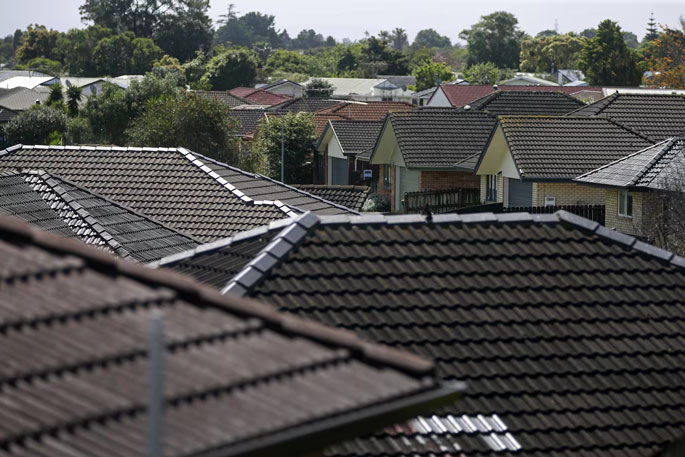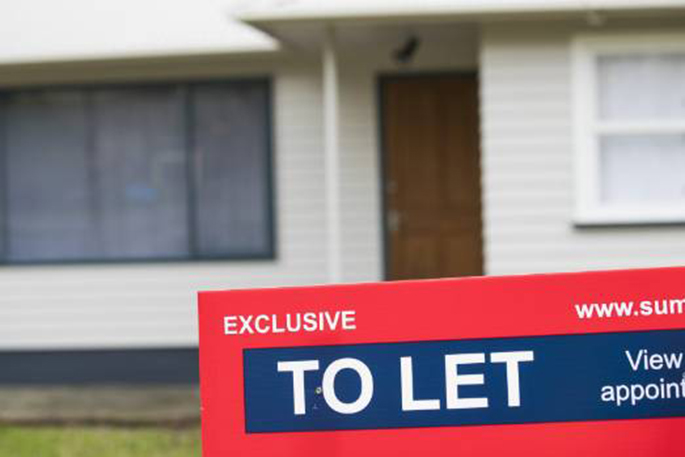Rental houses need to drop in price by $100 per week in Tauranga to become affordable, says a Bay of Plenty property management company.
Director of beHome property managers, Josh Fitzgibbon, said the median price bracket for rental properties in the Bay of Plenty hadn’t reduced enough to fall into the affordable bracket.
As of September 2, Tenancy Services reported the median house price for a two-bedroom rental property in Tauranga was $600 per week, and a three-bedroom house was $730.
In Rotorua, the median house price for a two-bedroom house was $520 per week with the adult minimum wage is $23.15 per hour or $48,152.00 per year for full-time work. That comes to $768.26 per 40-hour week.
“What is affordable is a difficult question - affordable for a single mum with a couple of kids on the benefit will change for a working couple with three kids,” Fitzgibbon said.
Indicators pointed toward the housing market picking up for sales, which he said caused rent prices to increase.
In Pāpāmoa a standard three-bedroom property was about $750 per week.
Fitzgibbon said for them to become affordable they would need to drop by $100 a week.
“If I had to gauge what would be more in demand – it would be the cheaper three bedrooms around the $700 mark in areas like Pyes Pa and Pāpāmoa ...
“I think the struggle is more in the public sector where families that are on a limited or a low income don’t have access to emergency or transitional housing,” Fitzgibbon said.
Analyst Greg Waite, who authored a report for the Child Poverty Action Group in July , found the share of affordable rentals had significantly decreased in most regions over the past five years.
The Bay of Plenty was not the worst in the country but low-income renters were still feeling the effects.
Waite said local councils needed more support from the government to supply housing for people on lower incomes.
“New Zealand has no capital gains taxes which is unusual, we created this market where the more you invest in it, the more prices go up and everybody knows it so they buy 10 or 20 properties with high debt and they get to claim the interest back.”
Waite said there was no official body available to monitor affordable housing stock for private rentals.
“That’s really the situation we’re in at the moment, there’s no clear responsibility for tracking what’s happening to lower-income households and whether that’s improving.”
Since the Child Poverty Action Group released the report in July, only one council had been in contact with him to follow up on the findings.
“It’s not that councils are uncaring or that, but they’re busy with a lot of other things and they’re not given the responsibility by Government,” Waite said.
“I would say that there’s a role for both local and national government but we do need the national government to take some leadership there.
“There are so many pressures for local government not to act on affordable housing, if you don’t make rules like that, you’re going to have increasingly divided residential areas very divided.
“The rich get richer, and the poor pay the price in terms of living costs,” Waite said.
Because there were no capital gains tax in New Zealand he said, “every investor wants a rate of return on property so you can only expect rental prices to go up”.
“In New Zealand we still have a reasonable amount of protection against foreign ownership.
“But I’m suspecting that behind the scenes that’s probably changing, given that it’s changed very rapidly overseas,” Waite said.
 Photo / Alex Burton.
Photo / Alex Burton.
Waite found an 11% decline in the Bay of Plenty’s share of affordable rental housing for low-wage households over the past five years.
" I don’t see why more time isn’t spent monitoring the effects of supply and affordable housing given that it’s such an enormous problem.
“Worldwide you really don’t see much monitoring - people are busy making money out of markets and seeing what’s going up and what’s going down.”
A follow-up report to better define affordability when it came to supply of affordable housing would be out this year, Waite said.
“When affordable rental housing gets less affordable too, even people on middle incomes and higher incomes are struggling to find a good home and they are more able to commandeer a bit of the affordable stuff if it’s in a good area.”
Waite said social trends aggravated affordability and people who could afford to keep up with them did so but not everyone was able to keep up with the market, he said.
“The poor areas become really impoverished in the better quality areas are priced just out of the reach of low wage people - certainly people on benefits.
“So you tend to see that divide into the really poor areas with poor quality housing and poor access to services and transport.
“The better areas just go ahead and get out of reach,” Waite said.
The Ministry of Housing and Urban Development identified rapid population growth over an extended period across the Bay of Plenty had not been matched by building response as a reason for the balance of access to affordable homes.
This “led to significant housing stress and increasing costs, which were not matched by income increases,” said a Housing and Urban Development spokesperson.
“In places like Rotorua, crowding and housing stress [have] increased and left some whānau and individuals homeless,” the Ministry spokesperson said.
Rotorua mayor Tania Tapsell said Rotorua desperately needed more affordable housing, adding that she had written to Housing Minister Chris Bishop seeking a Rotorua-led housing plan to deliver quick and positive progress “to boost the affordable housing supply in our district.”
“It’s hard right now for low and middle-income families to afford to rent and buy homes. Housing has become a top priority for the council and we’re working hard to help unlock land for more homes for locals and also attract new workers to our district,” Tapsell said.



0 comments
Leave a Comment
You must be logged in to make a comment.